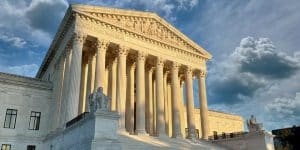Updated June 13, 2025
Whistleblower Protection Laws: Hidden Rights Most Employees Don't Know About
Whistleblower protection laws safeguard employees who report illegal activities, yet most workers remain unaware of these crucial rights. Despite existing federal and state legislation designed to shield those who speak up against workplace misconduct, many employees still fear retaliation if they report violations.
Unfortunately, this lack of awareness often leads to silence when confronted with serious legal or ethical breaches at work. Under California law and various federal statutes, employees have significant protections when they report activities like fraud, safety violations, or financial misconduct. These protections extend across different employment sectors and include specific remedies for those who face retaliatory actions.
This article explains your rights as a potential whistleblower, including who qualifies for protection, what constitutes a protected disclosure, proper reporting channels, and the legal remedies available if you experience retaliation. Understanding these hidden rights can make the difference between suffering in silence and confidently addressing workplace wrongdoing.
Who Is Protected Under Whistleblower Laws
Whistleblower protection laws cover a broad spectrum of workers across different sectors, though the specific protections vary significantly based on employment type and agency affiliation. Understanding who qualifies for these safeguards is essential for potential whistleblowers seeking to report misconduct without fear of retaliation.
Federal employees under 5 U.S.C. § 2302(b)(8)
Federal civil service employees receive some of the most robust whistleblower protections available. Under 5 U.S.C. § 2302(b)(8), federal employees are shielded from prohibited personnel actions when they make protected disclosures. This provision specifically prohibits taking, threatening to take, or failing to take personnel actions because an employee disclosed information they reasonably believed evidenced:
- Violations of laws, rules, or regulations
- Gross mismanagement or gross waste of funds
- Abuse of authority
- Substantial and specific danger to public health or safety
These protections apply to employees in executive agencies and certain government corporations. Furthermore, the Office of Special Counsel (OSC) has responsibility for investigating allegations of prohibited personnel practices, including whistleblower retaliation against federal employees [1].
However, not all federal positions qualify for these protections. Positions excepted from competitive service due to their confidential, policy-determining, or policy-advocating character may be excluded [2].
Contractors and grantees under 41 U.S.C. § 4712
Prior to 2013, many government contractor employees lacked clear whistleblower protections. Nevertheless, that changed when Congress permanently extended whistleblower protection for federal contractor employees through 41 U.S.C. § 4712 [3].
Currently, this statute protects employees of:
- Federal contractors and subcontractors
- Federal grantees and subgrantees
- Personal services contractors
These individuals cannot be discharged, demoted, or otherwise discriminated against for disclosing information they reasonably believe constitutes evidence of:
- Violation of law, rule, or regulation related to a federal contract or grant
- Gross mismanagement of a federal contract or grant
- Gross waste of federal funds
- Abuse of authority relating to a federal contract or grant
- Substantial and specific danger to public health or safety [4]
To qualify for protection, disclosures must be made to approved recipients, including Members of Congress, Inspectors General, the Government Accountability Office, federal employees responsible for contract oversight, law enforcement agencies, courts, or management officials with responsibility for addressing misconduct [4].
Unlike federal employees, contractor employees have three years from the date of alleged retaliation to file a complaint [4].
Military and intelligence community exclusions
While whistleblower protections are extensive, notable exceptions exist, particularly for military personnel and intelligence community employees.
Military personnel are covered under separate provisions—specifically the Military Whistleblower Protection Act (10 U.S.C. § 1034) rather than the civilian whistleblower statutes. This law prohibits taking or threatening retaliatory personnel actions against service members for making protected communications [5].
For National Guard members, protections apply only when a federal nexus exists, such as:
- When in Title 10 status (federal active duty)
- When drilling or training in Title 32 status (federally funded state service)
- For Washington D.C. National Guard members (under presidential command)
Conversely, Guard members on State Active Duty, training solely as state militia, or working as civilian technicians generally lack federal whistleblower protections [5].
Additionally, certain elements of the intelligence community are excluded from standard whistleblower protections. DoD, NASA, and the Coast Guard have their own whistleblower programs for contractor employees that differ from the general provisions under 41 U.S.C. § 4712 [1][6].
The Office of the Director of National Intelligence notes that IC whistleblowers operate under different authorities than the rest of the federal government, with protections found in Presidential Policy Directive 19 (PPD-19), Intelligence Community Directive 120 (ICD-120), and federal law [6].
What Counts as a Protected Disclosure
For a whistleblower to receive legal protection, not just any workplace complaint qualifies. The disclosure must meet specific criteria established under various whistleblower protection laws. Understanding what constitutes a protected disclosure stands as essential for employees considering reporting suspected wrongdoing.
Violations of law, rule, or regulation
At the core of whistleblower protection laws is the disclosure of actual legal violations. Federal statutes consistently recognize reports of violations of any law, rule, or regulation as protected disclosures. This category encompasses a broad spectrum of wrongdoing, from financial fraud to environmental violations.
The key standard is "reasonable belief" – whistleblowers need not prove the violation with absolute certainty. Instead, they must simply demonstrate they reasonably believed the information evidenced a violation. This reasonable belief standard protects good-faith whistleblowers even when their concerns ultimately prove unfounded.
Notably, disclosures involving classified or sensitive information receive protection only when made through proper channels. Unauthorized disclosures of classified information, even if they expose wrongdoing, may not qualify for whistleblower protection. According to federal guidelines, providing classified information to those without appropriate security clearance and need-to-know could constitute an unauthorized disclosure subject to administrative, civil, or criminal penalties.
Gross mismanagement or waste of funds
Beyond legal violations, whistleblower protection extends to disclosures about gross mismanagement or substantial waste of resources. Gross mismanagement typically involves actions so significant that they risk undermining the organization's ability to accomplish its mission.
In essence, these disclosures help safeguard taxpayer dollars and organizational integrity. For federal contractors and grantees, protected disclosures explicitly include gross mismanagement of federal contracts or grants and gross waste of federal funds.
It's important to distinguish between protected disclosures and unprotected complaints. According to the Office of the Director of National Intelligence, whistleblower protections do not extend to personal grievances, policy disputes, management disagreements or other trivial issues. The focus remains on serious mismanagement that significantly impacts organizational functions or taxpayer resources.
Abuse of authority or public safety threats
The third major category of protected disclosures involves abuse of authority or substantial danger to public health and safety. Abuse of authority typically refers to arbitrary or capricious exercise of power that harms the organization, its mission, or its employees.
Public safety disclosures receive particular attention under whistleblower laws. For a safety disclosure to qualify for protection, the threat must generally be both substantial and specific – vague concerns without concrete basis may not meet this threshold.
For contractors and grantees, disclosures related to a "substantial and specific danger to public health or safety" receive explicit protection. Moreover, federal employees, contractors, and uniformed service members all receive protection for reporting safety threats through appropriate channels.
The Department of Justice emphasizes that for all types of protected disclosures, the information must be provided to authorized recipients. While federal employees may generally disclose information to anyone (unless classified), contractors and intelligence community employees face more restricted reporting channels. For contractors, authorized recipients include Congress, Inspectors General, the GAO, contract oversight officials, law enforcement, courts, or internal management.
First and foremost, understanding these categories helps potential whistleblowers make informed decisions about reporting suspected wrongdoing while maintaining their legal protections against retaliation.
Where and How to Report Misconduct
Reporting workplace misconduct requires careful consideration of appropriate channels to ensure legal protection under whistleblower protection laws. Selecting the correct recipient for your disclosure not only strengthens your case but also maximizes your protection against potential retaliation.
Disclosures to Congress and Inspectors General
Congressional committees and Inspectors General serve as primary channels for whistleblower disclosures. For federal employees, disclosures to Congress receive explicit protection under 5 U.S.C. § 2302(b)(8), allowing workers to report concerns directly to appropriate oversight committees.
Likewise, Inspector General offices exist specifically to investigate allegations of fraud, waste, and abuse. These offices maintain dedicated hotlines for receiving complaints and operate independently from agency management to ensure objective review of allegations.
For employees dealing with classified information, additional steps must be taken. Specifically, classified disclosures cannot be sent through unclassified channels. Intelligence Community employees must follow procedures outlined in section 8H of the Inspector General Act when providing classified information to Congress.
Office of Special Counsel (OSC) complaint process
The Office of Special Counsel serves as the primary agency for receiving and investigating whistleblower disclosures from federal employees. To file a complaint with OSC:
- Complete Form-14 (Complaint and Disclosure Form) through OSC's Online Filing Portal
- Specify the type of disclosure you're making
- Provide detailed information about the alleged wrongdoing
- Submit the form electronically
After submission, OSC will confirm receipt in writing and provide a confirmation number. Subsequently, OSC reviews disclosures to determine if there is "substantial likelihood" that the alleged wrongdoing occurred—a determination typically made within 45 days.
Upon finding substantial likelihood, OSC may require the agency head to investigate and submit a report. As the whistleblower, you maintain the right to review and comment on this report before OSC's final determination is sent to the President and congressional committees.
Anonymous reporting and confidentiality rules
In many cases, whistleblowers can report anonymously or request confidentiality to protect against retaliation. Various agencies permit anonymous submissions, although completely anonymous complaints may limit an agency's ability to follow up for additional information.
Confidentiality provisions offer significant protection. For instance, Offices of Inspectors General are prohibited from disclosing a whistleblower's identity without consent unless disclosure is unavoidable during investigation. Similarly, the OSC will not share your identity outside OSC without your explicit permission.
For maximum protection when reporting sensitive issues:
- Consider consulting an attorney experienced in whistleblower cases before making disclosures
- Create a contemporaneous paper trail documenting key facts and developments
- Engage in whistleblowing on personal time using personal resources
- Utilize secure communication methods when discussing sensitive matters
Alternatively, whistleblower advocacy organizations can provide guidance through the process and potentially serve as intermediaries between you and investigating authorities.
Ultimately, your reporting strategy should balance the need to effectively communicate misconduct with appropriate protection of your identity and career interests.
Legal Process and Burden of Proof Explained
The burden of proof framework in whistleblower protection laws establishes a unique legal process designed to balance employee rights against legitimate agency interests. Understanding these standards remains crucial for whistleblowers navigating the complex legal landscape after making protected disclosures.
Preponderance of evidence for whistleblowers
Whistleblowers bear the initial burden in retaliation cases, requiring them to establish their case by a "preponderance of evidence" standard. Under this threshold, whistleblowers must demonstrate it is more likely than not that:
- They engaged in whistleblowing activity through a protected disclosure
- The disclosure was a "contributing factor" in a personnel action taken against them
This contributing factor element can often be established through circumstantial evidence showing the official taking action knew about the disclosure and acted within a timeframe suggesting a connection. Consequently, whistleblowers need not prove that retaliation was the only or primary motivation—merely that their protected activity influenced the decision in some way.
Clear and convincing evidence for agencies
Once a whistleblower meets their burden, the legal scales significantly shift toward the employee. At this point, the agency faces a much higher evidentiary standard—they must prove by "clear and convincing evidence" that they would have taken the same personnel action regardless of the protected disclosure.
This standard is deliberately more demanding than preponderance of evidence. As outlined in MSPB regulations, clear and convincing evidence produces "in the mind of the trier of fact a firm belief as to the allegations sought to be established." Indeed, Congress purposely established this heightened burden to provide meaningful protection for whistleblowers facing powerful agencies.
Timeline and escalation to MSPB or federal court
Whistleblower cases follow strict procedural timelines. In Individual Right of Action (IRA) appeals, whistleblowers must file within 65 days after OSC notifies them of investigation termination or after 120 days if OSC takes no action. For "otherwise appealable actions," employees must file within 30 days of the effective date or decision receipt.
Following an MSPB administrative judge's initial decision, either party may request review by the three-member Board. Ultimately, final MSPB decisions can be appealed to federal circuit courts, providing additional avenues for remedy. Throughout this process, the burden-shifting framework remains central to determining whether whistleblower protection laws have been violated.
Remedies and Protections Against Retaliation
Successful whistleblower cases result in several powerful remedies designed to make employees whole after experiencing retaliation. Federal statutes provide comprehensive relief options that address both economic and non-economic harms suffered by whistleblowers.
Reinstatement and back pay
Reinstatement stands as the primary remedy for wrongfully terminated whistleblowers, allowing them to return to their previous positions. Alongside this, back pay awards are not discretionary but mandatory once an employer's violation is established. Back pay typically runs from the date of discriminatory discharge until reinstatement or until a legitimate offer of reinstatement is extended. In fact, calculations need not be rendered with "unrealistic exactitude" but must be reasonably supported by evidence. Courts often resolve uncertainties in back pay calculations in favor of the whistleblower, as seen in various Merit Systems Protection Board (MSPB) decisions.
Compensatory damages and legal fees
Beyond employment restoration, whistleblowers may receive substantial compensatory damages for emotional distress and other harms. Importantly, courts have affirmed awards based solely on credible testimony even without medical evidence. Recent cases demonstrate the significance of these awards—in one instance, the Administrative Review Board affirmed a $50,000 award for emotional distress based solely on the complainant's unrefuted testimony about how discharge affected their financial circumstances. Another case resulted in $100,000 in compensatory damages after comparing similar previous cases.
Furthermore, most whistleblower protection statutes permit recovery of attorney's fees and litigation costs, ensuring financial barriers don't prevent access to justice.
OSC enforcement and arbitration options
The Office of Special Counsel serves as the primary enforcement mechanism for federal whistleblowers. Upon finding retaliation, OSC can order corrective actions including rescinding adverse actions and monitoring to prevent further retaliation.
Alternatively, some disputes can be resolved through arbitration, typically through binding agreements. Even so, the Dodd-Frank Act of 2010 rendered predispute arbitration agreements invalid for claims arising under Section 806 of the Sarbanes-Oxley Act, strengthening whistleblowers' position in these proceedings.
Conclusion
Whistleblower protection laws provide essential safeguards for employees who report workplace misconduct, yet most workers remain unaware of these critical rights. Throughout this article, we explored who qualifies for protection, what constitutes protected disclosures, appropriate reporting channels, legal processes, and available remedies.
Federal employees, contractors, grantees, and military personnel all receive different levels of protection under various statutes. These protections apply specifically when reporting violations of law, gross mismanagement, abuse of authority, or substantial threats to public safety. Workers must understand that not all workplace complaints qualify as protected disclosures—the reasonable belief standard and proper reporting channels matter significantly.
Whistleblowers should carefully consider where to report misconduct, whether through Congress, Inspectors General, or the Office of Special Counsel. Anonymous reporting options exist, though confidentiality rules vary across agencies. The legal burden initially falls on whistleblowers to prove their case by a preponderance of evidence, after which agencies face the higher "clear and convincing evidence" standard.
Successful whistleblowers can access powerful remedies including reinstatement, back pay, compensatory damages, and legal fee reimbursement. OSC enforcement mechanisms further protect federal employees from continuing retaliation.
Knowledge remains your strongest protection against workplace retaliation. Understanding your rights under whistleblower laws allows you to make informed decisions when confronted with illegal or unethical workplace activities. While coming forward involves risk, these legal protections exist precisely to shield those who speak up against wrongdoing. Whistleblowers play a crucial role in maintaining accountability and integrity across both government and private sectors—their protected disclosures benefit not just themselves but society as a whole.
Consulting a Los Angeles whistleblower attorney will provide you with the necessary guidance and support to navigate the legal process effectively. If you’ve been denied your rights as an employee by your employer, time is of the essence, please seek legal advice promptly to maximize your chances of a successful outcome.
Call Setyan Law at (213)-618-3655 for a consultation.
References
[1] – https://www.dol.gov/general/topics/whistleblower
[2] – https://www.law.cornell.edu/uscode/text/5/2302
[3] – https://www.federalregister.gov/documents/2023/10/05/2023-21321/federal-acquisition-regulation-whistleblower-protection-for-contractor-employees
[4] – http://oig.usaid.gov/node/1505
[5] – https://www.dodig.mil/Portals/48/Documents/Components/AI/Military%20Whistleblower
[6] – https://www.dni.gov/ICIG-Whistleblower/protected.html






